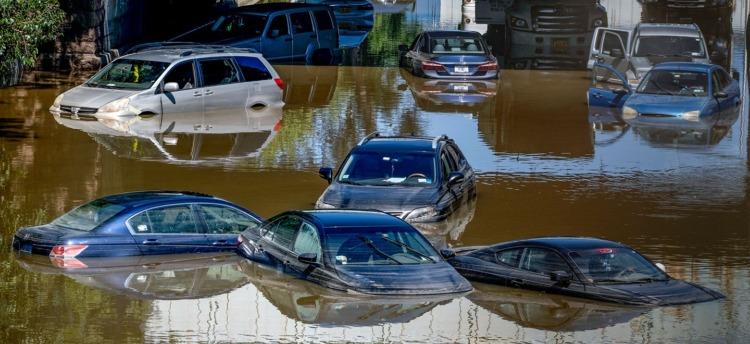Rising inequalities and unprecedented biodiversity loss have for long been some of the major effects of climate change.
The Covid-19 pandemic only added to the suffering that the world has consistently faced with Africa bearing the brunt of this onslaught. Africa has for decades lagged behind the rest of the world only excelling in a few economic sectors which have little impact on the overall economic wellbeing of the continent.
One area where Africa continues suffering is the access to clean energy.
The IMF estimates that an estimated half of sub-Saharan Africa’s (SSA) population today does not have access to electricity. Additionally, those who can access this resource pay nearly twice as much, on average, as consumers elsewhere in the world.
Outdated technologies
It is not a strange thing then that power shortage costs the continent about 2 to 4 per cent of GDP every year. And things can only get thicker unless proactive steps are taken to arrest the situation.
Electricity needs can only grow in the foreseeable future due to the fact that sub-Saharan Africa’s population is expected to more than double from one billion in 2018 to more than two billion people in 2050. This shows that the current infrastructure notwithstanding, the continent has only one option and that is to ensure that the projected demand for electricity can be satisfied.
With the IMF’s projection that the continent’s power demands will expand by three per cent every year, Africa has put in place measures to steadily increase power generation and access to electricity. Greater energy efficiency will also go a long way in addressing the challenge.
Already, by not meeting the demand for energy, there are ripple consequences for health and the environment. Coal, oil and traditional biomass which include wood, charcoal and dry dung fuel are the current energy sources in Africa. This energy mix is largely harmful not only to the environment but also to the health of those who use it.
Looking ahead 30 years, the continent’s energy sources have to change. This is if African governments are to provide a healthy environment for their citizens while also meeting the emission limits for GHGs as set out in the 2015 Paris Agreement.
Low-carbon approach
However, there are hurdles towards providing clean energy in Africa, the biggest of which is financing.
In comparison, fossil fuel plants are cheaper to build but they are expensive to run since they require a continued supply of fuel which comes at a cost. On the flip side, renewable sources are not expensive to operate but installation costs are high and they must be financed upfront. This means that a shift towards clean energy is not easy and it could, just like in other scenarios in Africa, limit the continent from exploiting its renewable energy potential.
A low-carbon approach to developing clean energy sources means that African countries have to mobilize financing from diverse sources to raise funds needed for renewable-energy projects. How to go about this means that African governments must reduce subsidies to fossil fuels while protecting the vulnerable which calls for a delicate balancing act. The subsidies could go towards financing renewable-energy projects.
Again, the governments could work with the private sector by reducing bureaucracy and changing regulation and reducing the identified governance-related risks to private investors in the renewable energy projects in Africa.
With political stability remaining key to attracting investments in the renewable energy sector, there has to be an improvement in governance aimed at reducing political risk.
African countries could also reform the financial sector to boost the developing green bond market and reduce financial risk by transferring some of it to public actors which could help attract private investment.
Unreliable renewable energy
In 2019, the International Energy Agency (IEA) noted that only about 4 per cent of the world’s energy-related carbon dioxide emissions in 2018 originated from Africa and yet, this region is the hardest hit by climate change.
This, in a fair world, would mean that the international community is obliged to support the continent’s switch to renewable energy. However, since this is not the case, Africa has to make the best with what is at its disposal.
Since coal, oil and traditional biomass remain easily accessible as sources of energy, should the continent even bother switching to the unreliable yet expensive renewable energy?
The possibility of this question being debated with not positive outcome is high but the reality remains that Africa’s renewable energy potential is excellent due to the fact that it has diverse sources which could provide unlimited energy if well-tapped and harnessed.
While the reality and the downside of renewable energy remains that the supply fluctuates which poses a reliability challenge, it nonetheless is a sector that needs investing in to ensure that the growing population is not limited by lack of energy.
With the continent’s population already suffering from inadequate power supply, African governments have no reason to not invest in the sector whether Africa is a large contributor of GHGs or not. In addition, the IEA notes that prices for renewable energy are almost at par with those of fossil fuels.
The IEA adds that:
- Shifting towards renewable energy is possible and affordable in Africa.
- Solar, hydro and wind power could be the largest sources of energy by 2050.
- The potential for renewable energy has seen prices match those of fossil fuels.
- Renewable energy is available everywhere on the continent but only the mix varies.
- The intermittent renewable energy power supply can be addressed.
With this in mind, Africa is primed for a shift to renewable energy which will provide access to energy to those who are cut off from the system.
In addition, a reliable power supply will see the continent’s economy grow since losses of 2 to 4 per cent of GDP every year could be avoided.
